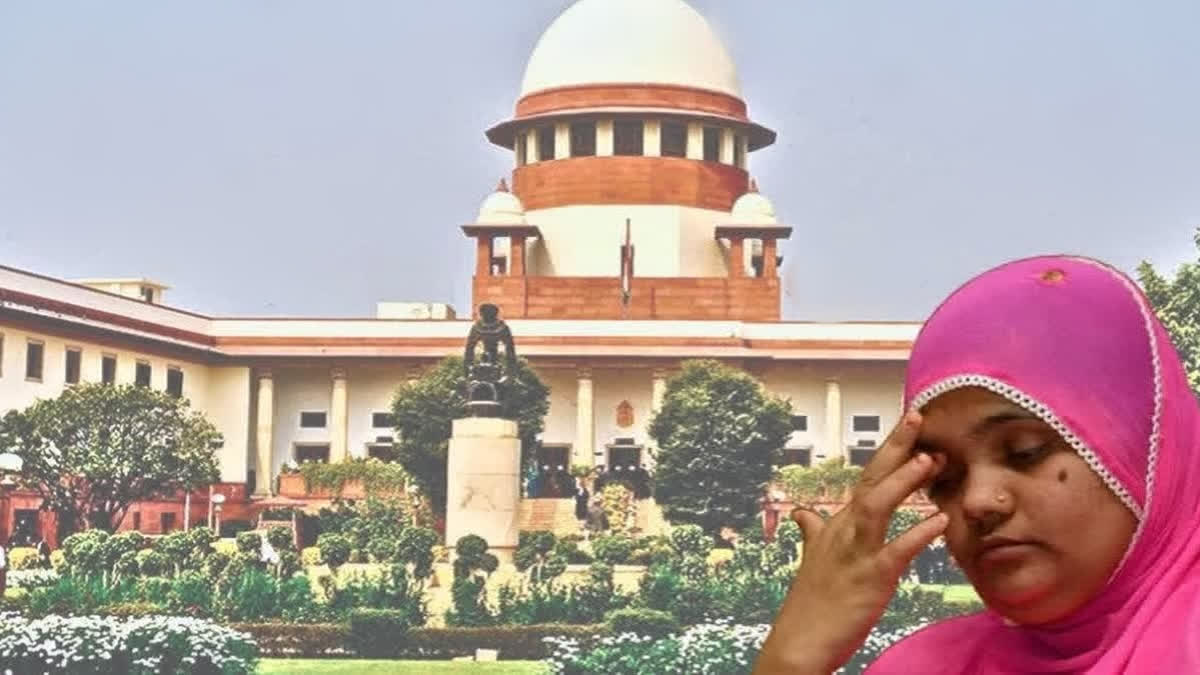New Delhi:The Supreme Court on Monday set aside the Gujarat government decision to grant remission to 11 convicts sentenced to life term for the gangrape of Bilkis Bano and killing her family members during the 2002 Gujarat communal riots.
The apex court has directed all convicts to surrender before the jail authorities within 2 weeks.
A bench comprising justices B V Nagarathna and Ujjal Bhuyan pronounced the verdict on a batch of pleas challenging the validity of premature release granted to 11 convicts in Bilkis Bano gang rape and murder of family members during Gujarat riots in 2002. In October, last year, the apex court had reserved its verdict in the matter after hearing rejoinder submissions by various petitioners.
Justice Nagarathna said that the state of Gujarat was not competent to pass the remission orders. The apex court said on this ground alone that Gujarat government lacked competence, therefore the writ petitions are liable to be allowed and the orders are liable to be declared as nullity. The apex court said that not Gujarat but Maharashtra government was competent to pass orders.
The Gujarat government, defending its decision, had submitted that it granted remission on the basis of a judgment passed by another bench of the apex court in May 2022, and after they had served 15 years in jail.
Besides the petition filed by Bilkis Bano challenging the remission granted to the convicts by the Gujarat government, several other PILs including one by CPI(M) leader Subhashini Ali, independent journalist Revati Laul and former vice-chancellor of Lucknow University Roop Rekha Verma have challenged the relief. TMC MP Mahua Moitra has also filed a PIL against the remission granted to the convicts.
Regarding the May 2022, order of the apex court which formed the basis for Gujarat government to grant remission to convicts, the bench said that our inferences on the May 2022 order of this court is respondent no 3 (Radhey Shyam) had not stated that Gujarat High Court had dismissed his plea under 437 CrPC and that respondent no 3 had not stated that application of premature release was filed in Maharashtra and not Gujarat.
